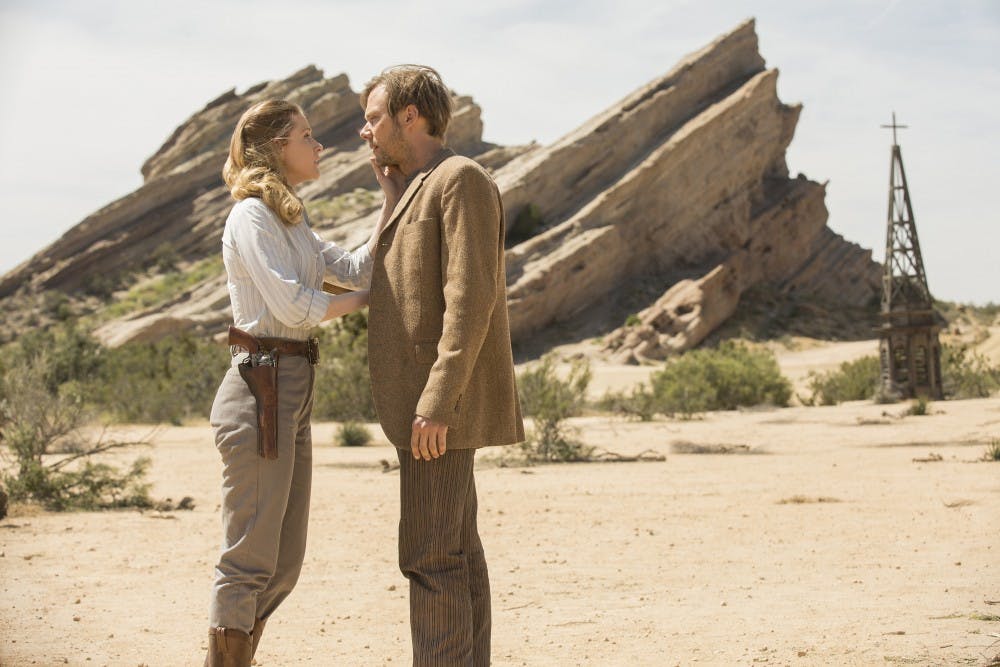No: Jenna Schiferl
The HBO television series “Westworld” has recently generated large amounts of attention in the media and popular culture. It has received positive reviews from consumers and has been compared to successful HBO series “Game of Thrones.” However, it has proved to be disappointing so far.
Based on the 1973 film, “Westworld” occurs in a futuristic society where rich vacationers enter an amusement park filled with robotic “hosts.” These hosts are indistinguishable from humans. Their appearance is incredibly realistic and they posses artificial intelligence that gives them the illusion of free-will and consciousness.
The first episode of “Westworld” hooks viewers with a dramatic cliff-hanger. Well-executed cinematography and a diverse cast made it easy to become emotionally invested and involved with the narrative. However, the plot became somewhat stale as the show progressed.
There were many synthetic dramatic events that were injected into the storyline. Their primary purpose was to generate shock, but had no real value. This device was used repeatedly to build suspense and provoke a strong emotional reaction from the viewer. Unfortunately, when approached logically the plot twists often lacked any depth or concrete rationale.
As I continued to watch the show, I felt as if I was observing a random collection of unrelated radical events that were solely intended to elicit a response in the viewer. And although these dramatic events were initially pleasing, it eventually became repetitive and dull.
With only one remaining episode in the season, I have high expectations for the finale. If the final episode is unable to successfully justify all of the seemingly irrelevant and unnecessary dramatic tools used in previous episodes, I will regret the hours I wasted watching this program.
Yes: Brad Dountz
“Westworld’s” biggest strength is its ability to tell a great story — something Anthony Hopkins' character has been doing all season. “Westworld” has succeeded with this aspect and is able to support itself even with all the twists and turns that come along with it. What the first season has been building towards is an inevitable uprising from the robots or “hosts” that are subjected to unspeakable cruelty that the human customers who visit the park pay for. It succeeds in asking the age-old question of what makes certain beings human and others not in an exciting, HBO quality package.
A few complaints have been about all the forced twists and violence against women, but even with all its faults, “Westworld” tells of a bigger game going on. All the characters may know pieces of what is going on with the park, but does anyone on the show truly know the whole picture? A not so subtle MacGuffin for the show is called “The Maze,” a layered level to the park that seems to attract some hosts’ and a certain guest’s attention. Just like “Lost," “Westworld” likes to ask big questions and give the best answers it possibly can. It is building something that we can’t quite see yet, so much so that the audience has begun to identify with the robots because they are oblivious to their basic enslavement. Could the same be said about our society now? Who knows? That is the same question “Westworld” has been slowly answering over several episodes and we still have no idea. Even with the season finale airing Sunday night and nine episodes already behind it, the audience still feels like first-time guests, finally ready to see what actually makes the robots tick.

